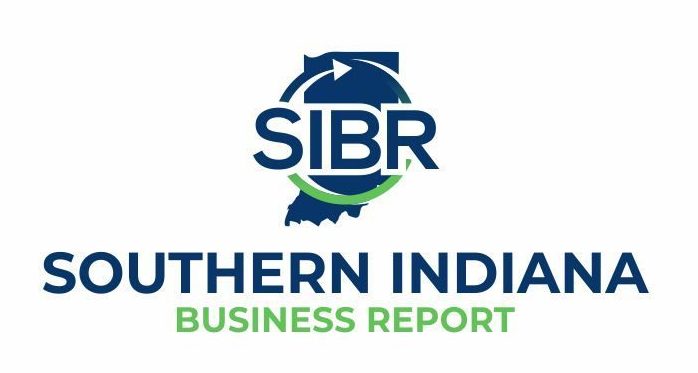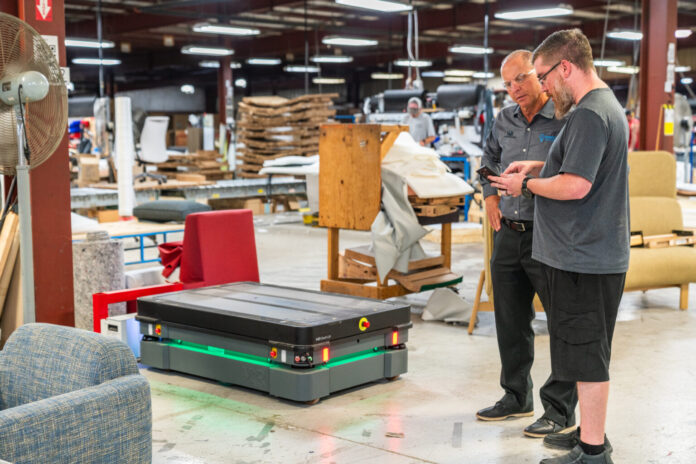Southern Indiana Business Report
ORLEANS – The recent integration of autonomous mobile robots at Jasper Seating Company Inc.’s facility in Orleans is accelerating the furniture manufacturer’s transition into smart manufacturing.
JSI, a division of Jasper Group, worked with Indiana technology integrator Robot Solutions LLC after receiving a Manufacturing Readiness Grant of $98,000 from Conexus Indiana in 2023.
The robots are improving efficiencies on the plant floor and have proven to be a wise investment.
Conexus Indiana highlighted the integration and JSI’s implementation of a Manufacturing Readiness Grant in a recent case study published on its website. Below is a summary of the case study.
Project initiation
Delivering raw materials from the shipping and receiving location to its production operations in the expansive Jasper Group Orleans plant was a manual-intensive process. Multiple shuttles ran daily throughout the plant that were managed by employees who drove golf carts to deliver raw materials and other parts to JSI production lines.
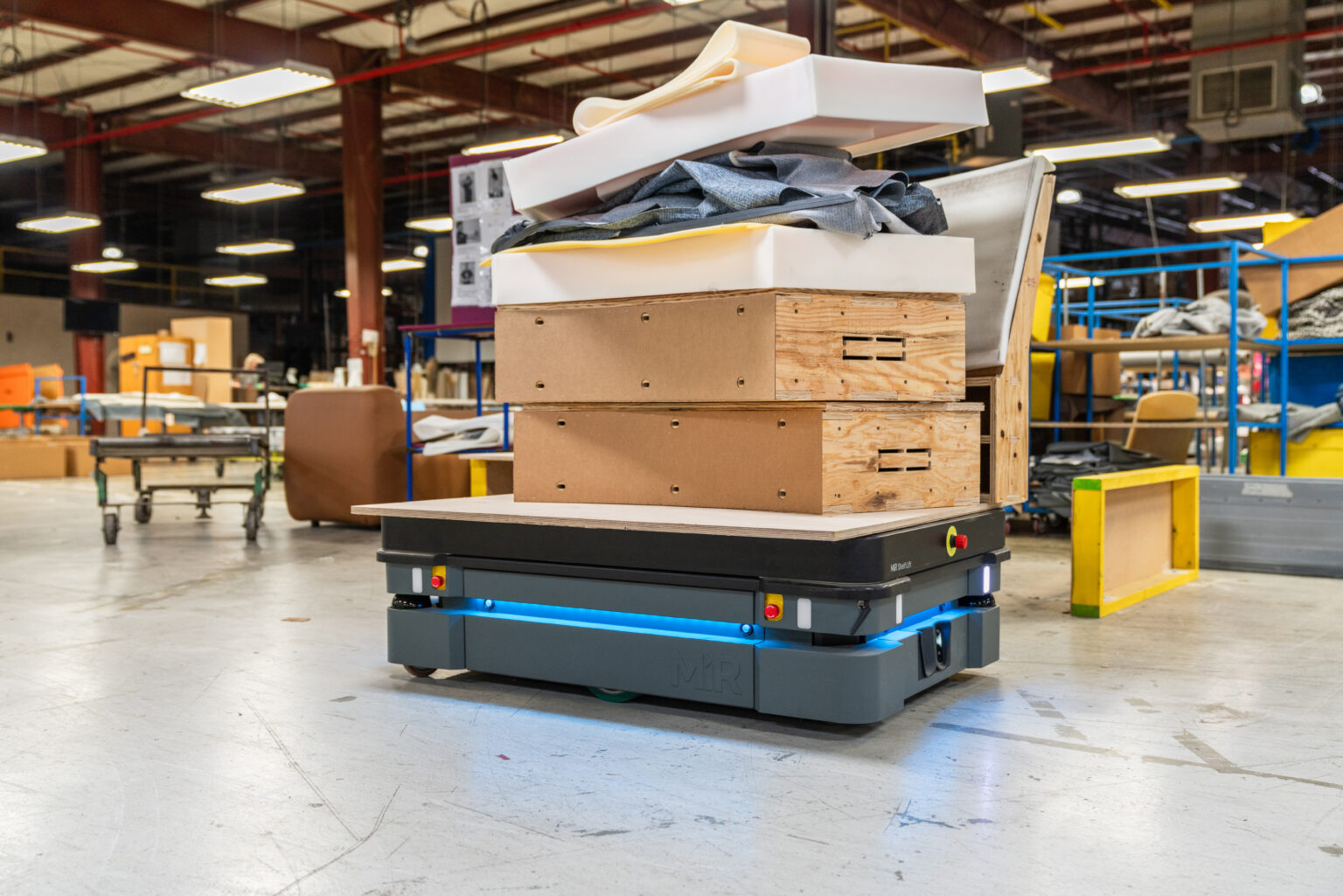
“You can imagine how time-consuming that job was,” said Jeff Harris, Jasper Group’s vice president of operations. “We were transferring parts and raw materials from one end in our 1.4 million square foot building to production lines on the other side. It felt like the materials were never there when you needed them, and so, it was an ideal process to optimize with technology. We wanted to better organize the material handling processes and not waste anyone’s time going back and forth in the plant.”
President of Robotic Solutions Rick Braun had previously brought an autonomous mobile robot (AMR) demo unit to the factory floor for a test run, and some two dozen Jasper Group employees observed the demonstration. “There was a lot of attention, a lot of excitement,” Braun said.
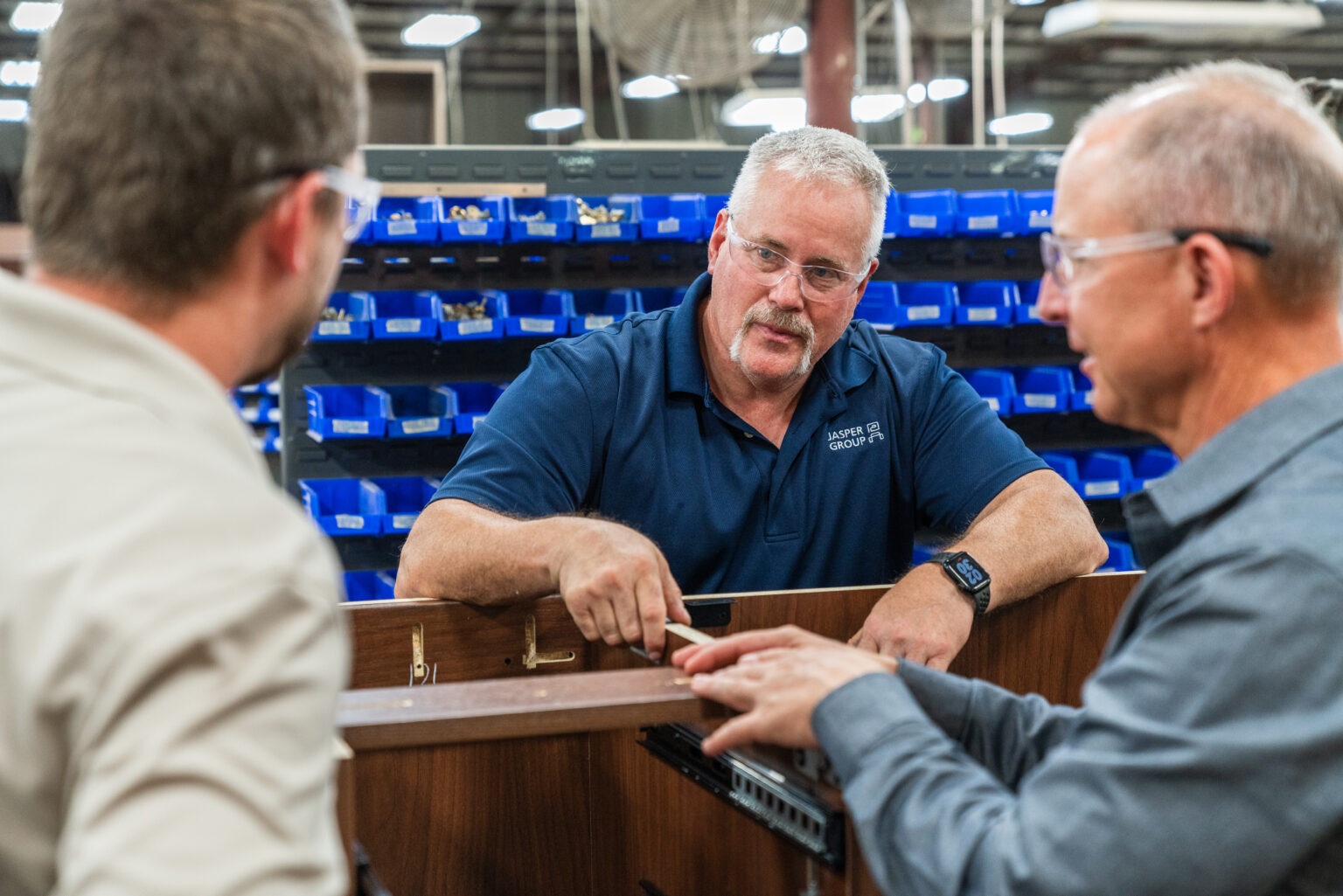
From there, Robotic Solutions collaborated with Jasper Group on an MRG application to automate the material handling process. Once the project was approved, Robotic Solutions delivered three MiR Mobile Robot 600 units to the Orleans plant, including the hardware and integrated software. Their head engineer and product manager spent a few weeks with Jasper’s production staff to train and upskill them on how to both operate and maintain the AMRs. Following the training, Jasper’s employees took control and began to schedule automated routes for the AMRs.
“A lot of the work is on their end,” Braun said. “The AMRs must fit their needs. We give some guidelines and estimates based on the distances from Point A to Point B. I think three is a good start, but they might find out after another year that they need to add another AMR.”
Improved efficiencies, safety
Jim Alberts, Jasper’s senior director of Continuous Improvement, and Harris did significant pre-planning.
“We tried to flush out everything we thought would be an issue,” Alberts said.
One of Jasper’s lead continuous improvement engineers, Andy Rostron, carried out the bulk of the internal set-up work, creating and simplifying dashboards to track the AMRs. The autonomous mobile robots now run nonstop from the start of the day through the end of the shift, without any downtime. The robots can carry up to 1,250 pounds on each continuous cycle from receiving and shipping to production and back to receiving with empty carts. They can detect obstructions and stop or re-route around the obstruction, increasing safety and efficiency within the plant. Those benefits alone can increase lead times and on-time performance.
Troubleshooting for seamless integration
The project implementation goal, according to Braun, was to have the technology implemented within a few weeks and then hand the keys to the Orleans manufacturing staff. “But having said that, we don’t just walk away,” he said. “We stay with them for any troubleshooting and integration issues.”
The project has been a great success, Harris said. “We went from three people working eight hours a day to accomplish material handling, all of which is now augmented by the AMRs. Those workers were redeployed to other areas or departments within the plant.”
In fact, Harris said JSI started with two of the MiRs in use, but the system was functioning so well that they were ready to introduce the third just a few months later. It will be deployed in the upstairs upholstery production line.
Listen to your workforce
Jasper Group leaders advise others who plan to embark on automation to work with a technology integrator like Robotic Solutions and listen to the workforce.
It’s important to recognize the pros and cons of any process improvement, Harris said. Plant managers should also spend time talking to the employees doing the work now and understand why they do the work in a certain way.
Working through skepticism
Change is often accompanied by an undercurrent of apprehension. Harris said frequent communication with workers was essential.
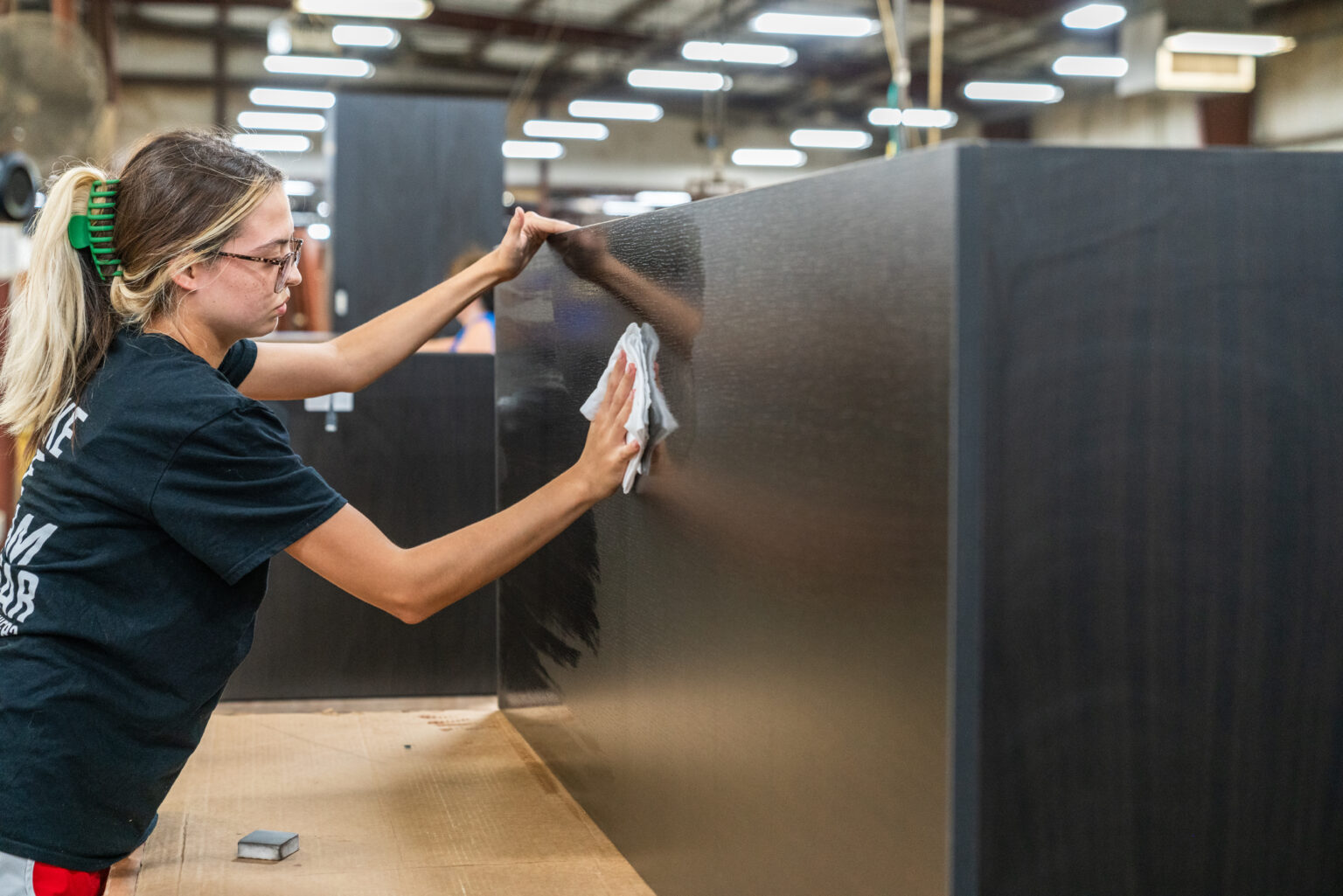
“You can’t talk to people too much about this kind of thing. We wanted to spend as much time as we could with our workforce, educating them about the tech project and how we planned to re-deploy them in our facility. Once they learned that the robots would take over the repetitive task of shepherding parts back and forth between receiving and the production line, their apprehension about automation began to fade.”
Harris continued, “Now everyone is feeling confident, and they all see the improvement in the process, too.”
Background on Jasper Group
Under the parent company Jasper Group, JSI and Klem operate three manufacturing facilities in southern Indiana, and together comprise the oldest continuous manufacturer of office furniture in the United States. One unique demonstration of the company’s commitment to product quality and durability, is the first chair produced by JSI all the way back in 1929, which still remains in production today.
With nearly 1,000 employees, three manufacturing plants and 2.3 million square feet of offices, lumber yards and mill rooms, Jasper Group posts $200 million in annual sales and is projected to reach $250 million in 2025. Solid wood products are produced at the Jasper location, and veneer wood and laminate case goods are built at other plants located in Dubois and Orange counties.

